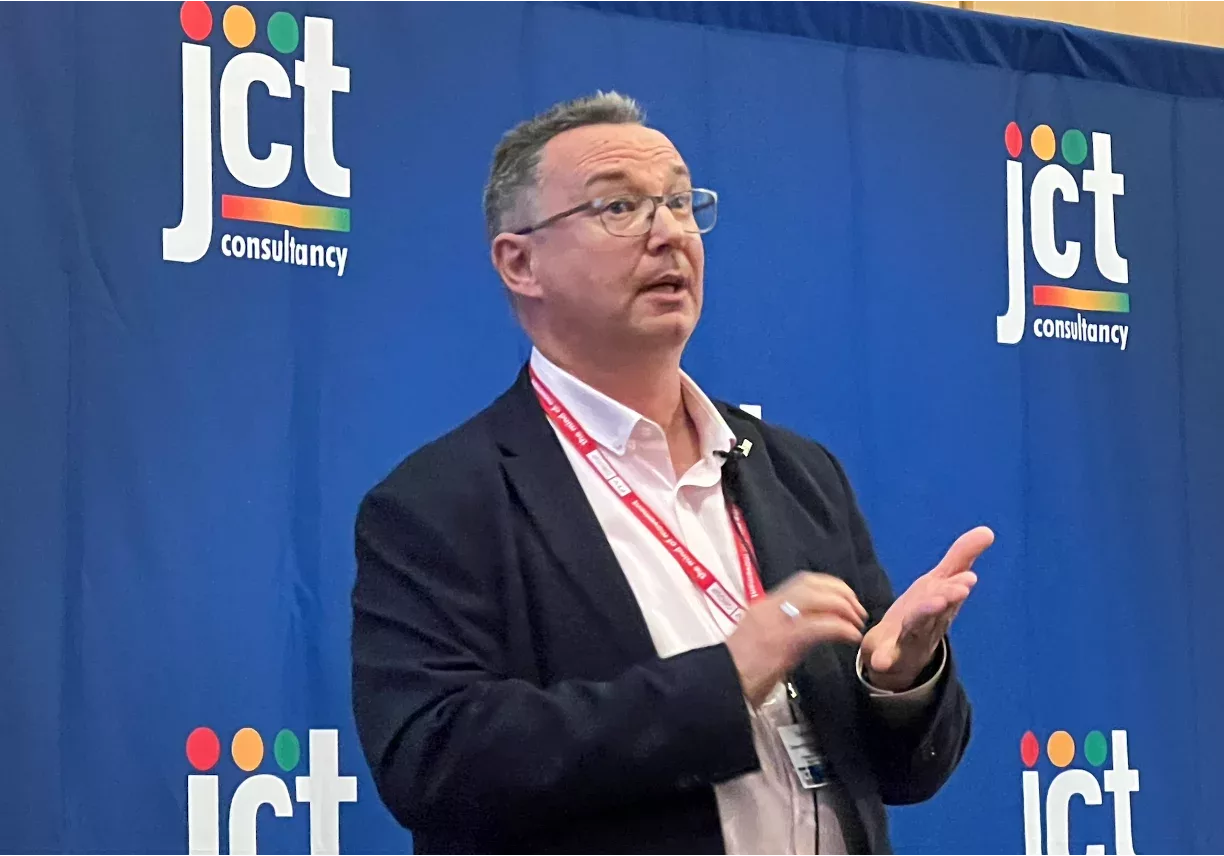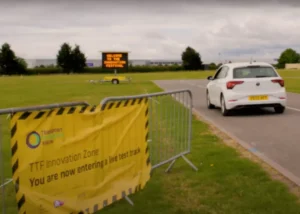Darren Capes, manager of the Transport Technology Forum and ITS Policy Lead at the Department for Transport has challenged the signals industry to consider how traffic signals can make a real difference to the way we travel.
Speaking to the JCT Traffic Signals Symposium in Nottingham he set out three challenges to use traffic signals to deliver better, more reliable journeys, promote active travel by making it easier for vulnerable road users and people who walk and cycle to access our roads more safely, and to prepare for the future technology and travel needs.
“You could argue autonomous vehicles are still some way off, but connected vehicles are here now. The data is there, the comms is there and the in-vehicle capability is there,” he said. “That’s only going to increase and that will change the way the road system works. We are the gatekeepers for the technology and we need to build now for the future – we don’t want to paint ourselves into corners.”
He insisted he is not speaking officially for DfT but outlined his views on what he’s looking for in his role within the Department to maximise the benefits of technology on the local road network.
Mr Capes congratulated the industry for effectively using £15 million DfT Traffic Signals Maintenance funding issued in 2021 to accelerate maintenance and improvement of traffic signals, saying the money has been spent on around 240 schemes and analysis is now showing how successful this has been.
He has been working with INRIX to use floating vehicle data to analyse how traffic patterns have changed before and after the signals changes, and the results have been “extremely promising”.
“We’re seeing when authorities used the money to improve traffic flow, we saw an average 10% improvement,” he said. “We really aced that, and proved to other people in the Department and Treasury that there is tangible benefit in making this investment.”
He also addressed obsolescence and promised the Department is working on issues around halogen lamps and legacy communications.
We are developing digital TROs, digital traffic signal data standards, the National Parking Platform, the National Access point for Transport Data, working across Europe to use vehicle data for safety purposes. There is a lot of work Government is doing in the background to support those three challenges.
He also urged the audience to be involved in the Transport Technology Forum. “It does a different thing to JCT,” he explained. “JCT delivers real detail, but TTF looks at interaction with Government and both are equally important.
“We have just published the Manual for Smart Streets – an onnline guide on how to buy technology and focusses on the policy outcomes we want to achieve – it’s not yet perfect and so I need people to review it, throw rocks at it, and then I can continue to fund it to make it better.”
(Picture – JCT)























